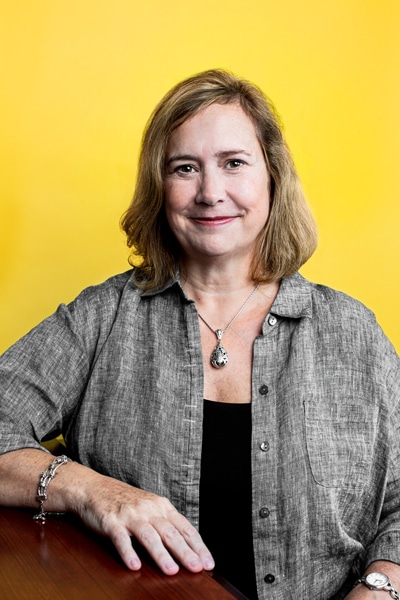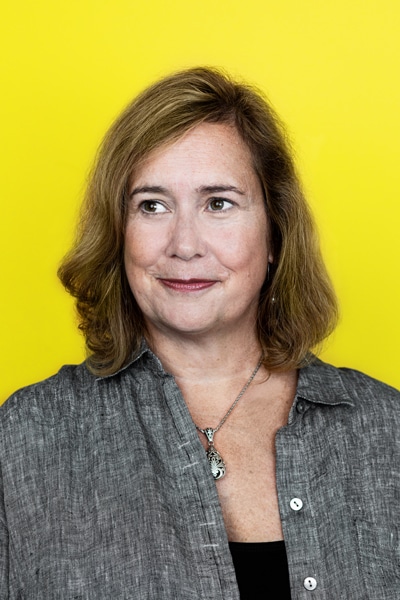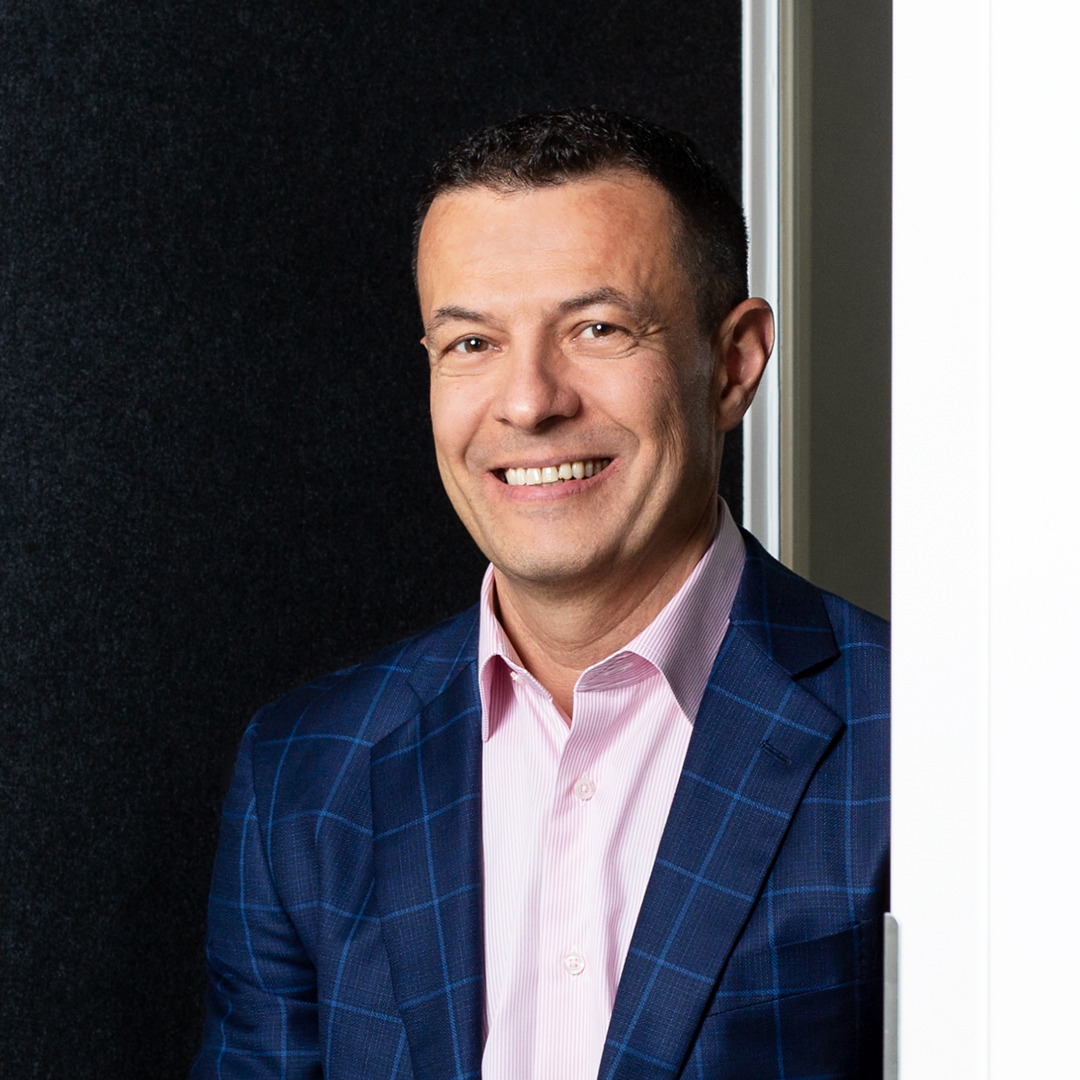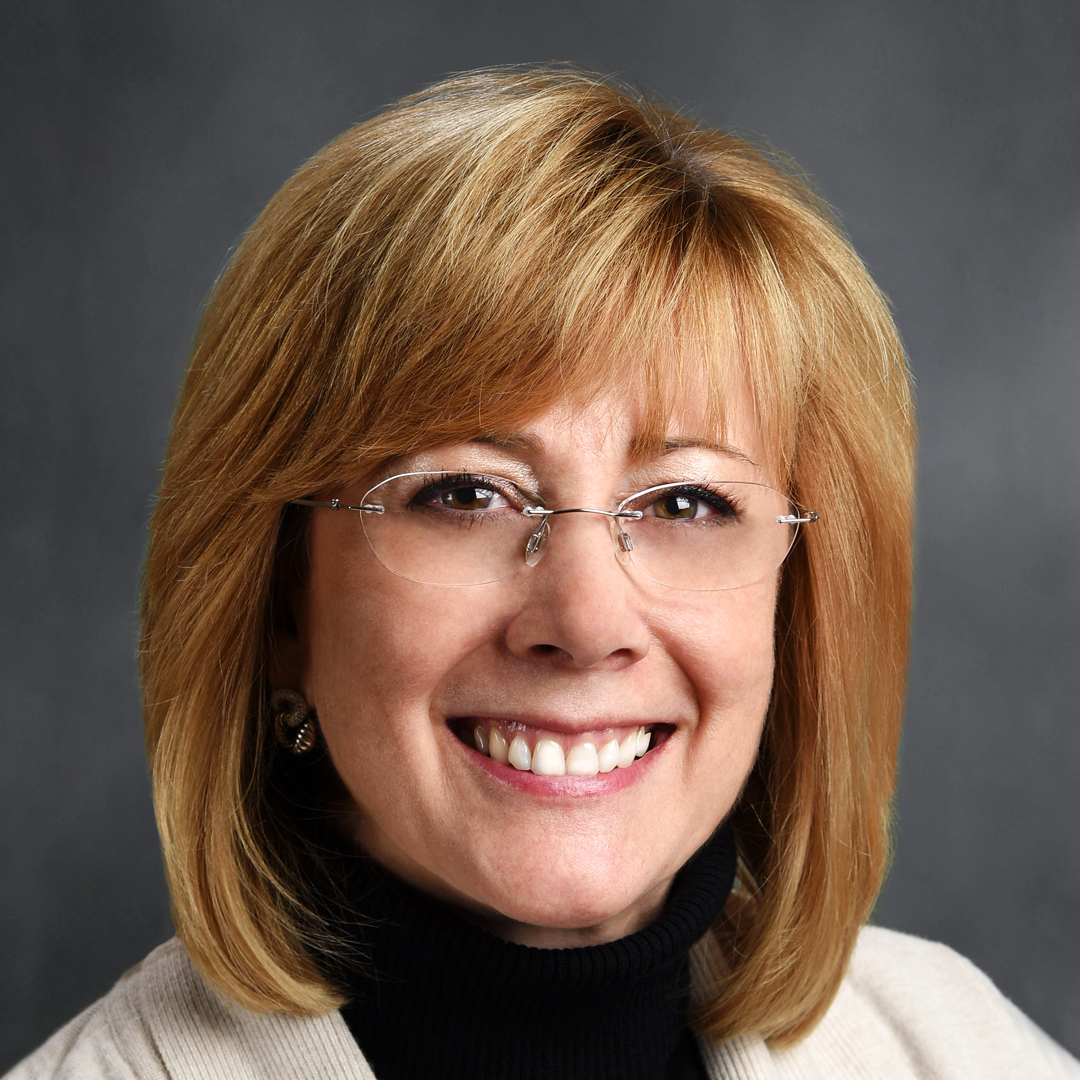Lynn Gordon did her due diligence before accepting the position of chief legal officer at New Hanover Regional Medical Center.
“I did a ridiculous amount of research,” Gordon says. “I read about the history of the original hospital and the community. I read anything and everything I could lay my hands on regarding the current health system; and when I came in for interviews, I went out afterwards into the neighborhood and sat at a local restaurant just talking to people. And it turned out to be exactly the organization I’d hoped it would be.”

Gordon had good reason to be selective. Raised in a household of academic medical professionals, she spent her childhood working in clinical research labs, volunteering at hospitals, and discussing the latest spinal meningitis cases or fetal alcohol syndrome and cocaine addiction research over dinner.
“Watching and being a part of that research, in particular, really opened my eyes to what healthcare means,” Gordon explains. “But it also showed me what was lacking and what changes would be coming next. That kind of appreciation for healthcare as it relates to addiction and other societal issues is one that many people think they have, but it’s so different when you live it and feel it.”
Initially, Gordon had no intention of following her parents into the healthcare sector. She had secured bachelor’s and master’s degrees in English and was pursuing a PhD in English at Michigan State University when she decided to make a change.
“I loved writing, communication, and teaching, but I knew that I was never going to be a writer or a professor,” Gordon says. “I started to ask myself, ‘How do you practically apply those skills in a career that’s meaningful?’ That’s when I discovered there was a health law discipline that focused entirely on healthcare, on how clinical research, hospitals, and providers are regulated.”
As Gordon began working in the legal sector, she quickly recognized that her expertise in English, and related teaching experiences, were assets to her work with healthcare leaders. “My English background has been most helpful in researching and communicating about such a complicated area of law. When you’re in a situation where you have to work with a CEO in a complex area, you have to be able to break the material down, teach it, communicate it, and be practical about it,” Gordon notes.

But even as Gordon flourished as an equity partner and the Chicago healthcare department chair at Nixon Peabody LLP, she began to understand that she was still missing the sense of impact she remembered from her childhood.
“I realized that I found my greatest joy when I was with providers and other healthcare leaders, with my clients in their boardrooms or C-suite, or sitting and strategizing with a critical access hospital that was just about to lose its Medicare certification because the team didn’t understand or follow through on a particular survey,” Gordon remembers of her decision to focus on nonprofit healthcare. “Being able to be out there and make that difference and work with the folks who really have such an important role in our society, that was the point where I knew that I had found my sweet spot. I like more than anything to be in a healthcare system, not in a law firm or a remote office, but sitting there with CEOs, CFOs, physician, and chief nurse executives figuring out problems and solutions.”
“Lynn recognizes the value and importance of relationships,” remarks Ken Roorda, a principal with ECG Management Consultants. “She knows how to distill complicated organizational and legal frameworks into simple concepts that build connectivity around common goals.”
New Hanover’s network of hospitals, emergency services, and ambulatory care centers drew Gordon’s attention because of the challenge presented by its surrounding environment. Serving seven different counties and a high percentage of indigent and uninsured individuals, New Hanover is situated in both urban and more rural areas marked by a high incidence of obesity, diabetes, opioid addiction, and heart disease.
“I’m on a team that is looking through the lens of keeping a community healthy and out of the hospital.”
“But I think that what we’re doing to rise to the occasion is phenomenal,” Gordon says. “We are very passionate about health equity. We’re out there talking with community leaders, getting out there in barbershops, churches, and community treatment centers and asking, ‘What’s lacking? What’s missing? What are the pieces that we’re not all working together on?’ And that’s critical, and very special.”
According to Gordon, New Hanover does not worry about filling its beds—indeed, she says that the main medical center is over its bed count almost every day in their daily census. That overflow, in part, has motivated New Hanover to take a community health-centered approach.

“I’m on a team that is looking through the lens of keeping a community healthy and out of the hospital,” Gordon says. “A lot of North Carolina is rural. The people we serve sometimes live an hour away and can’t come to our main campus for care. We also have a lot of poverty-associated food deserts that make it hard for people to get the nutrition they need and a shortage of low-income housing that adds to our homeless population. We really try to look beyond the straightforward ideas of, ‘You’re sick, let us treat you.’ There’s so much more to it when you talk about community health.”
Gordon is what outside counsel likes to see in a chief legal counsel. “She has extensive knowledge of healthcare law, regulations and case law,” says Britt Blackerby, partner at Harris, Creech, Ward & Blackerby. “She quickly sees all sides of an issue, is very analytical and passionate about patient safety.”
Through her team’s work at New Hanover, Gordon has found the sense of impact and meaning she was looking for. “I am working with people who are smart and passionate about what they do; they really care about the community and healthcare,” she says. “It’s something I picked up on from the moment I walked in the door.”
The True Meaning of Community Health
As Lynn Gordon sees it, it is impossible to work toward community health without creating measures to include everyone in that community. “We support a diverse community, a diverse staff, and a diverse patient population,” Gordon says. “It’s one thing to say we’re open and diverse and another to really strive to be that. We’re really doing it, though. As an employer, for example, our health plan covers transgender surgery. While certain laws require nondiscriminatory coverage, our plan is both comprehensive and affordable as it relates to transgender care, which is pretty rare. Both from an employee and consumer perspective, we want everybody to feel welcome and included.”
According to Gordon, New Hanover is also working on an initiative that allows individuals to provide their gender identification during the patient admitting process. “We’re really trying to make sure everyone has a voice, everyone feels comfortable, and everyone feels supported,” Gordon affirms.
A New Family Focus
Lynn Gordon was the first woman on the executive team of the law firm she worked at in the 1990s, but she wouldn’t say that her time as a female attorney was entirely easy. She waited quite a while before having children, partly because of industry pressures and partly because of her own insecurities in not knowing what to expect with no maternity leave policy in place and some hesitation around open and candid conversations at the time.
“If you have a baby, you physically can’t be in the office the next day like a man can,” Gordon says. “So, the pressures aren’t always terribly nefarious but rather a part of our practical reality.”
Nonetheless, Gordon is gratified to see the progress made in recent years. “We’ve done a much better job in the last decade in recognizing that parents—not just women, but men as well—need support around family leaves,” she says. “They need to know that the support is there, that you can come back to work strong, and often even stronger.”


